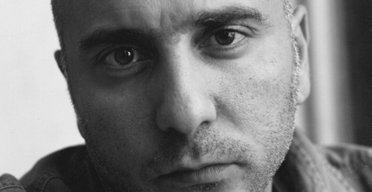Debut novelist beats Roth, Pynchon and Atwood to Impac prize
Lebanese author Rawi Hage, writing in his third language, wins the 100,000 Impac Dublin literary award for his novel De Niro’s Game

A debut novelist writing in his third language has bested competitors including Philip Roth, Thomas Pynchon and Margaret Atwood to take the world’s richest literary prize. First-time author Rawi Hage was this morning declared the winner of the 100,000 Impac Dublin literary award for his novel De Niro’s Game.
De Niro’s Game is set during the Lebanese civil war in the 1980s, its title alluding to the Russian roulette which features in the celebrated Vietnam film drama. In Hage’s novel, the private lives and morals of two young friends are pushed badly out of shape by the relentless stresses and brutality of the conflict raging around them. The judges’ citation, delivered at a ceremony in Dublin’s City Hall earlier, praised De Niro’s Game for its “originality, its power, its lyricism, as well as its humane appeal … the work of a major literary talent.”
Speaking from Dublin, Hage said he was “over the clouds” at the news. “I feel very very grateful and lucky to have it”.
Hage, now 44, started working as a novelist relatively late, having trained as a photographer. “Someone told me I should be writing,” he says, after which he started writing a short story. “It kept enlarging, until I realised it had to be a novel.”
The novel draws on his own experience as a child in Beirut during the civil war. “But it’s also a work of fiction, and it has universal themes. Many people who have lived in conflict zones respond to the story.” Hage wrote De Niro’s Game in English, but grew up speaking Arabic and French. It was only as an 18-year-old international student that he began to read English, since when he has spent time living in New York and his current home in Canada.
He says that having gone on to read a great deal of fiction in English, it seemed natural to write his own in this language.
The prize is painstakingly international, with novels in translation into English from any other language eligible to compete and, with the victor chosen by an international jury. Many of the world’s biggest literary guns had already been seen off when the shortlist of eight was announced in April. Hage’s remaining competitors included Spanish writer Javier Cercas, Andrei Makine from Russia, and Ireland’s Patrick McCabe.
The prize is open to novels in English, and in translation from any other language. For translated works to be eligible for the prize, the translation must have been published during the calendar year preceding the longlist nomination process (in this case, 2006), and the original title must have been published during the preceding four years (in this case, since Jan 1, 2002). The Impac’s prize money eclipses almost every other literary prize – and its (characteristically very long) longlist is based on nominations from lending libraries around the world.




